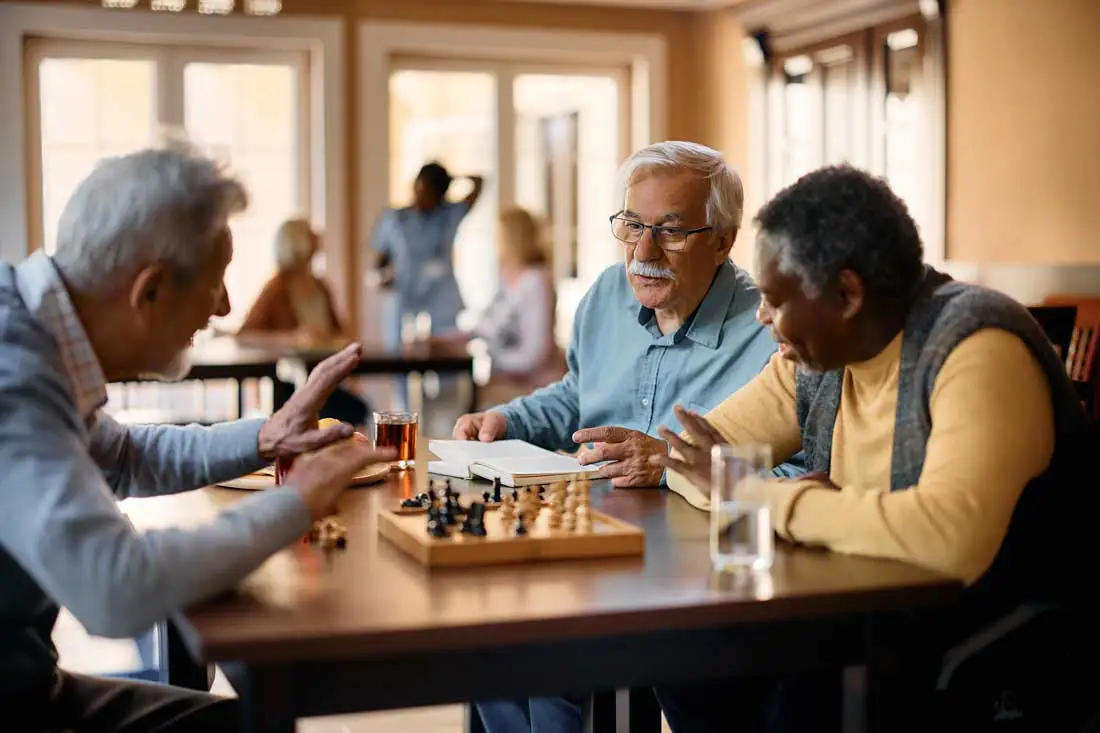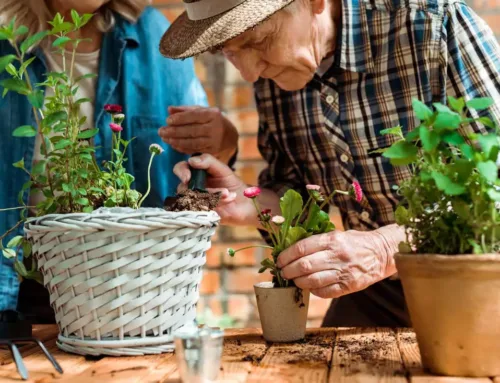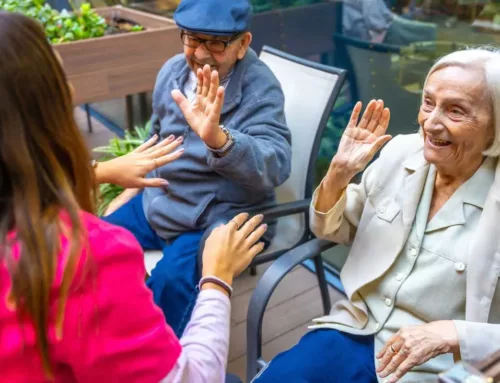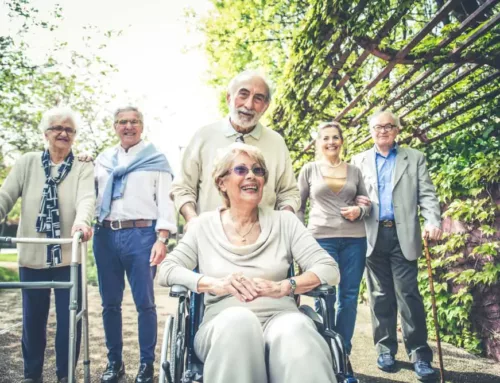
According to recent research, engaging in leisure activities has a significant positive effect on seniors’ happiness and life satisfaction (Çol et al., 2022). ¹ Considering hobbies often naturally leads to new friendships, a renewed sense of purpose, learning new skills, or even improved fitness, it’s not surprising.
Why Are Leisure Activities Important for Seniors?
Finding recreational activity seniors truly love can be transformational for their well-being, with benefits that support physical, mental, and cognitive health.
These benefits include:
- Combating loneliness. As of 2023, around one in three American seniors aged 50-80 reported feeling socially isolated (University of Michigan, 2023). [2] Many leisure activities are enjoyed in groups, naturally promoting positive social interactions and easy formation of friendships based on shared passions.
- Providing a sense of purpose and identity. A person’s vocation is often a huge part of their identity, and career-driven seniors may struggle with a loss of drive and direction after retirement. Finding meaningful hobbies and projects to work on can help renew this all-important sense of purpose.
- Supporting cognitive health. A wealth of research suggests that recreational activities could have a tremendous positive impact on cognitive health (Wang et al., 2012). [3] Hobbies involving hand-eye coordination (like gardening or arts and crafts) may be particularly beneficial.
- Encouraging physical activity. Many leisure activities involve exercise or movement (e.g., yoga, walking, aerobics). Engaging in movement-based hobbies can reduce a senior’s risk of experiencing common health problems like cancer, cardiovascular disease, and type 2 diabetes. Physical activity is associated with up to a 21% reduction in risk of death from any cause in American adults (Hoon Lee et al., 2022). [4]
How Can You Help a Senior Loved One Enjoy Recreational Pursuits?
Seniors face challenges that may prevent them from leaving the house and engaging in regular leisure activities. Some challenges have a simple fix, whereas others may take more effort and creativity to combat.
Perhaps your loved one has no transportation, or maybe they find the prospect of trying new things daunting due to anxiety, hearing or sight loss, or a neurocognitive condition like Alzheimer’s. Here are just a few ways you can help as a family caregiver.
Help Them Find Local Groups of Interest
Many communities host religious, recreational, or social groups specifically for older people in the local area. These can be great places for seniors to engage in hobbies and interact with others who have similar interests. In turn, this can lead to new friendships and feelings of belonging to an uplifting community.
Accompany Them and Offer Moral Support
At any age, stepping out of our comfort zone, meeting new people, and starting a new activity can be daunting. Issues like poor mobility, cognitive decline, and sensory impairments can make entering new environments even more overwhelming for seniors. If your loved one has shown interest in a specific group or activity, offering to go with them the first few times could be the positive encouragement they need.
Provide Convenient Transportation
Lack of transportation can be a significant practical barrier preventing seniors from exploring their community and accessing leisure activities. Many seniors give up driving at some point during retirement, often due to factors like reduced confidence, high insurance premiums, cognitive decline, sensory impairments, or slowing reflexes.
A 2018 poll by the National Aging and Disability Transportation Center [5] found that older adults in the U.S. often feel isolated due to inaccessible and unreliable public transportation. Therefore, something as simple as offering your loved one a ride to a social group, class, or activity each week could make a difference.
Consider Assisted Living or Memory Care
If you are struggling to find suitable recreational activities for your loved one (perhaps due to lack of time, few opportunities in the local area, or health conditions like Alzheimer’s or dementia), residential senior care could be the ideal solution. In memory care and assisted living, seniors can access many social events and activities.
These activities enrich residents’ lifestyles by promoting socialization, cognitive engagement, and physical activity. Professional caregivers are trained to provide practical and emotional support that gently encourages residents to discover new and fulfilling pastimes safely.
Leisure At Saguaro Ranch Assisted Living
As we move into April, Saguaro Ranch’s senior care community becomes an actual hive of activity. Our assisted living and memory care residents enjoy various exciting recreational activities, making the most of the pleasant springtime temperatures and famous Arizona sunshine before the summer heat sets in.
At Saguaro Ranch Assisted Living, we believe in a fluid approach to senior care that allows residents to live a life that meets their needs and fulfills their wishes. Flexible and coordinated senior care plans allow residents to receive a tailored level of care that keeps them feeling independent and empowered. These care plans are the perfect foundation for seniors to build a true leisure lifestyle.
Our philosophy on activities is equally flexible; instead of having rigid schedules that force seniors out of their comfort zone or into activities they do not enjoy, we allow residents to guide us. Our residents varied recreational activities weekly include yoga, picnics in local parks, shopping trips, Zumba, pet visits, and much more! We are always open to suggestions and requests, too.
Families have credited us with helping their loved ones rediscover their personality and smile. Contact us to arrange a guided tour of our thriving senior care community to find out why.
Cited Sources
[1] https://journals.lww.com/njcp/fulltext/2022/25110/the_effect_of_leisure_activities_on_successful.18.aspx
[2] https://deepblue.lib.umich.edu/bitstream/handle/2027.42/175971/0300_NPHA-Loneliness-report-FINAL-doifinal.pdf?sequence=4&isAllowed=y
[3] https://www.sciencedirect.com/science/article/pii/S0925443911001979
[4] https://www.ahajournals.org/doi/full/10.1161/CIRCULATIONAHA.121.058162
[5] https://www.prnewswire.com/news-releases/new-national-poll-inability-to-drive-lack-of-transportation-options-are-major-concerns-for-older-adults-people-with-disabilities-and-caregivers-300761774.html




